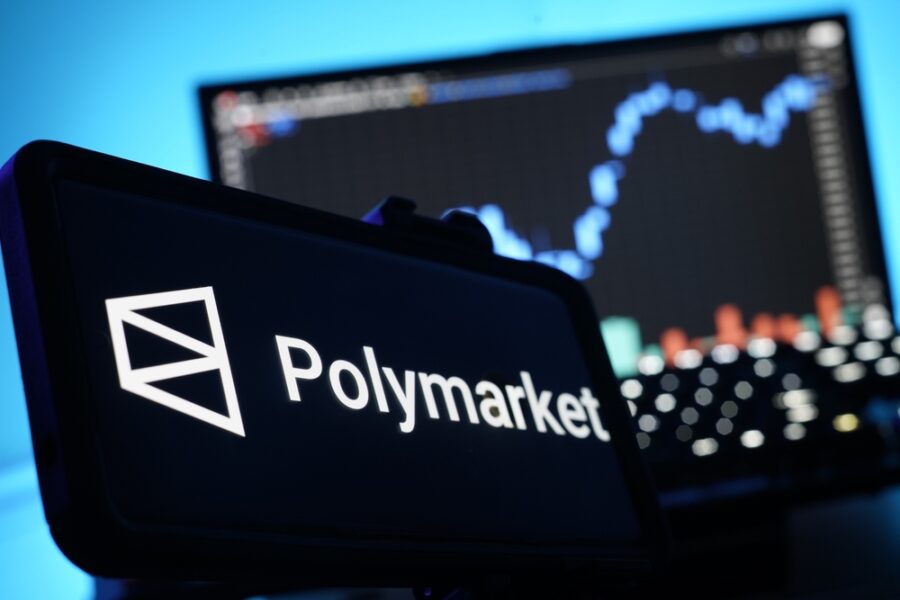Polymarket set to relaunch in US as early as Friday

Four years after being banned by the Commodity Futures Trading Commission, prediction market Polymarket is set to reopen to US customers, according to filings submitted by the platform.
Polymarket, which operates on the Polygon network and deals in crypto-based predictions, agreed to block US users four years ago. The settlement came with the Commodity Futures Trading Commission after the prediction market was accused of running an unregistered derivatives trading platform.
After acquiring the crypto exchange group QCX for US$112 million, Polymarket was granted a way to reenter the US. Following this, the Commodity Futures Trading Commission gave the prediction platform the go-ahead by issuing a no-action letter on September 3.
Polymarket has filed for certifications in four areas: athletic events, athletic spreads, total athletic scores, and election winner event contracts. The platform could launch as early as October 3.
Speaking at a joint Securities and Exchange Commission and Commodity Futures Trading Commission panel on Monday, Polymarket Chief Executive Shayne Coplan discussed how it’s up to individuals in the crypto space to continue innovating, ensuring sites like Polymarket remain safe for US users.
He said, “I think that puts the onus on us and other players in the space to go and get inventive and come up with solutions that both embody the spirit of the rules that you see in traditional financial regulation, with what’s capable of the technology.”
Charlotte Capewell brings her passion for storytelling and expertise in writing, researching, and the gambling industry to every article she writes. Her specialties include the US gambling industry, regulator legislation, igaming, and more.
Verticals:
Sectors:
Topics:
Dig Deeper
The Backstory
From enforcement to a reopening window
Polymarket’s path back to the United States traces to a hard stop and a strategic reset. The crypto-native prediction market agreed to block U.S. users after Commodity Futures Trading Commission scrutiny and a settlement several years ago, then operated abroad while interest in event contracts surged. Now the platform is preparing a U.S. relaunch, supported by a CFTC no-action letter issued Sept. 3 that followed its purchase of a licensed exchange-and-clearing operator. The company has filed for certifications covering athletic events, spreads, total scores and election winner contracts, positioning for a launch as early as Oct. 3, according to Polymarket set to relaunch in US as early as Friday.
The return attempt lands amid a broader debate over whether prediction markets constitute useful information tools or merely new forms of wagering. That argument has unfolded both in federal court and in regulatory policy. Rivals have fought their own battles, setting precedents that shape the landscape Polymarket now seeks to reenter.
The QCEX pivot to regulatory compliance
The hinge move was Polymarket’s $112 million acquisition of QCEX, a derivatives venue with Designated Contract Market and Derivatives Clearing Organization permissions, designed to give the platform a compliant U.S. foothold. The deal is detailed in Polymarket acquires QCEX for $112 million in US market re-entry bid. By buying into existing market infrastructure, Polymarket secured a pathway to list narrowly defined contracts under federal oversight, rather than attempt a standalone registration from scratch.
Regulatory breadcrumbs show how the approvals came together. QCX LLC—the entity associated with the acquired licenses—appears in recent agency-facing documentation including an athletic events certification filing, an athletic spreads certification and a total scores contract package. The CFTC amplified the trajectory in a public notice of no-action relief, referenced in a commission press release that outlines how a designated market and clearing house could list discrete event contracts without enforcement.
That structure matters for commercial viability. A regulated DCM/DCO stack lets Polymarket carve out categories the CFTC has historically tolerated—such as certain sports outcomes—while testing the boundaries on politically sensitive contracts where U.S. rules have been less stable. It also offers counterparty protections, surveillance and margin frameworks institutional users expect.
Policy winds shift after Kalshi’s courtroom win
Polymarket’s timing reflects a changing legal backdrop. In 2023, a federal judge allowed Kalshi to offer election trading despite the CFTC’s objections. This year the agency dropped its appeal, removing a near-term cloud over political event markets. Kalshi’s CEO called the outcome historic; reform advocates warned it opened the door to gambling on congressional outcomes. Either way, the decision created de facto space for regulated venues to revisit political contracts, provided they fit within exchange rulebooks and public interest tests.
Polymarket’s U.S. plan follows that arc. The platform highlights compliance while acknowledging the controversy. As noted in Commodity Futures Trading Commission gives Polymarket go-ahead for US launch, industry voices have cast prediction markets as a potential information frontier, even as critics deride them as digital casinos. The CFTC’s no-action posture does not resolve every question, but it signals a willingness to supervise narrowly defined contracts rather than shut the sector out.
Global friction shows the limits of expansion
The U.S. opening contrasts with pushback elsewhere. Colombia’s regulator, Coljuegos, moved to block Polymarket, arguing its election-focused markets constitute unauthorized games of chance under national law. The move is detailed in Colombia’s gambling regulator orders ISPs to block Polymarket. Officials said any betting activity requires a state license and framed the crackdown as protecting health-care funding tied to the legal gaming sector. The episode underscores how fragmented rules remain. A platform engineered for U.S. derivatives compliance may still collide with gambling laws abroad, especially on political content.
That regulatory divergence is a commercial risk. Even with a compliant U.S. footprint, cross-border access, marketing and data distribution can trigger local licensing issues. It also complicates product strategy: what is permissible in one jurisdiction may be banned in another, pushing operators to geo-fence aggressively and customize their listings.
Amped distribution and scale ambitions
Polymarket has paired its compliance push with distribution. A new tie-up with X designates the platform as the social network’s official prediction market partner, with plans to blend market probabilities, Grok analysis and real-time social signals. The plan is outlined in Polymarket ties up with X as official prediction market partner, which describes integrated notes and future technology rollouts. The bet is that ubiquitous feeds and AI-driven context can convert passive consumption into trading activity.
Market traction helps that pitch. The company reported more than $8 billion in notional activity in 2024 and about $6 billion in the first half of 2025, per its statements in the acquisition coverage and partnership reports. Independent tallies point to a broader boom: prediction venues collectively have logged billions in volume and hundreds of thousands of active traders this year, according to The Block’s analysis of 2025 activity. Investor interest has followed. The advisory bench has expanded as well, including a high-profile appointment described in a PR announcement of a strategic investment and advisory addition.
Still, scale hinges on the types of contracts that can be listed in the U.S. and how quickly retail and institutional users gain confidence in the market’s plumbing. QCX’s contract certifications—covering sports outcomes and totals—suggest where the ramp begins. Whether election markets sit alongside them soon will depend on how the CFTC interprets public interest and whether political contracts migrate onto exchange rails without new litigation.
The stakes for markets and policy
Polymarket’s relaunch bid tests whether a crypto-rooted prediction venue can become a regulated information marketplace in the U.S. The company’s acquisition of QCEX and the CFTC’s no-action letter give it a legitimate runway, as laid out in the relaunch report and subsequent coverage. Kalshi’s court win cleared some legal haze, but political contracts remain a flashpoint. Abroad, enforcement like Colombia’s shows how quickly policy can turn.
The outcome will ripple beyond one platform. If regulated prediction markets prove they can add timely, crowd-sourced probabilities without fueling manipulation or disorderly trading, they could become fixtures across media and finance. If not, the sector risks getting boxed into narrow, sports-only lanes or pushed back offshore. For now, the U.S. reopening window is ajar. The next set of contract listings—and how regulators react—will determine how wide it gets.






